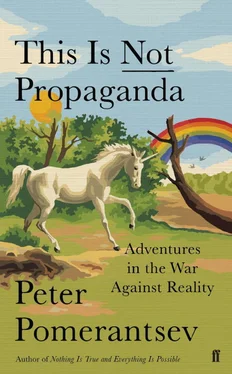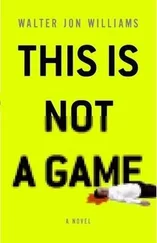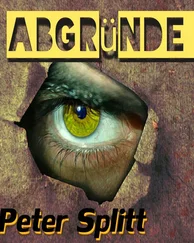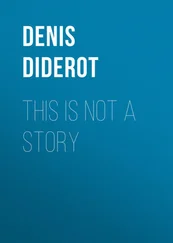Igor’s angriest writing was saved for the cynicism he encountered in the West. The German journalist who told him ‘the truth must be somewhere in between The Gulag Archipelago and official Soviet statements’. Or the newspaper editor whom Igor was trying to persuade to write about his friend Piotr Vince, who faced receiving another prison sentence while still serving his first one, in response to which the editor merely yawned and answered that ‘This theme is old and boring. Does the Russian [i.e. Igor] want money?’ Did the editor not realise that one article in his newspaper could change a prison sentence? Did the journalist not realise that there was no ‘middle’ in between truth and lies?
‘No one needs you dissidents here,’ an older Russian exile told Igor, meaning to say that no one in the West actually cares about all this business with ‘rights’, so why does he even bother? ‘He who was a conformist at home is a conformist here,’ wrote Igor. ‘I’m sure the man who told me this lived in the USSR as if he didn’t know or care about the thousands imprisoned inside political camps in Mordovia or Perm. His words were just an excuse, a lie. There are people here who care.’
Igor’s essays were published in small literary magazines with tiny circulations, but which were, so the theory went, influential, as they targeted a cultural elite. There was Partisan Review, where Igor’s essay on the ‘Right to Read’ appeared; decades later it would emerge the CIA helped the magazine survive by buying up copies when sales were low. There was Encounter, whose own CIA-funding scandal had already passed back in 1967. [26]
The Cold War had a cultural front, and Igor was rapidly finding himself drawn into it. In 1980 he was invited to London for an interview for a job at the BBC’s Russian Service, which would have been vetted, as were all such interviews, by a member of MI5. MI5 never requested the vetting process themselves – no one at the BBC ever knew any classified information. It was the BBC itself that asked MI5 to do it. If the British government were ever to complain the BBC was being in any way disloyal to the country, the Corporation would be able to say that its employees had been vetted in advance. The vetting was not just for foreigners; many staff at the Corporation went through it. [27]
There was also a security consideration. In 1978 a member of the BBC’s Bulgarian Service, Georgi Markov, had been walking to the office across Waterloo Bridge when he felt a twinge in his hamstring. He turned round to see a man passing by with an umbrella. A day later, as he lay dying, he would realise the ricin poison had been injected into him via the umbrella. Later, it would emerge the assassination had been carried out by the Bulgarian secret services, with ricin provided by the KGB poison factory near Moscow. [28]
Igor passed his writing test, and the vetting. We moved to London, part of a tiny quota of Soviet refugees allowed in – the British granted few entry visas to immigrants beyond their former empire. But we were being recruited for a Cold War effort.
Part 3: The Most Amazing Information Warfare Blitzkrieg in History
Today, talk of cold war has been replaced with discussion of information war. My office is stacked with thick reports and papers, such as ‘The Kremlin’s Firehose of Falsehood’ and ‘The Digital Maginot Line’. I have written about ‘The Weaponisation of Information’ and ‘How to Win the Information War’ myself, analysing the Kremlin’s use of media in neighbouring countries.
During my research, I came across a Russian manual called Information-Psychological War Operations: A Short Encyclopedia and Reference Guide (the 2011 edition, credited to Veprintsev et al. and published in Moscow by Hotline-Telecom, can be purchased online for 348 roubles). The book is designed for ‘students, political technologists, state security services and civil servants’ – a kind of user’s manual for junior information warriors. The deployment of information weapons, it suggests, ‘acts like an invisible radiation’ upon its targets. ‘The population doesn’t even feel it is being acted upon. So the state doesn’t switch on its self-defence mechanisms.’
The encyclopedia seemed to take the idea of information war beyond just cyber- and media campaigns, as I had believed it to mean, and to hint at something more expansive. And the more I delved into the Russian literature on ‘information war’, the more it seemed to be not just a foreign policy tool, but also a quasi-ideology, a world view. How is it different to the Cold War, and how does one win, or lose, it?
Operation Perestroika
In the late 1990s and the first decade of the twenty-first century the idea of information war began to obsess a certain breed of security-agency-connected Russian geopolitical analyst attempting to understand history, and the failure of the Soviet Union in particular. Secret service agents turned academics assert the Soviet Empire collapsed not because of its poor economic policies, human rights abuses, lies, but because of ‘information viruses’ planted by Western security services through Trojan-horse ideas such as freedom of speech and economic reform (Operation Perestroika). [1]Alleged secret agents in the Soviet Establishment who posed as so-called modernisers, allied with a Washington DC-dictated fifth column of anti-Soviet dissidents, oversaw the dissemination of these ‘viruses’.
For a long time such theories were not in the Russian mainstream. But as the Kremlin searched for ways to explain the colour revolutions and the growth of discontent at home, which erupted in hundreds of thousands protesting against Vladimir Putin’s rule in 2011 and 2012, this all-pervasive information war philosophy became increasingly amplified by TV spokes-people and spin doctors. Today, runs the argument, the West wages information war against Russia with the cunning use of the BBC and human rights NGOs, fact-checking organisations and anti-corruption investigations.
One of the most outspoken public promoters of the information war is Igor Ashmanov, [2]a frequent guest on TV talk shows and radio. ‘The fall of the Soviet Union, Yugoslavia, Iraq… we’ve lived through many information wars,’ said Ashmanov in one of his many interviews. [3]He’s also told Russian law-makers that Google, Facebook and Twitter are ideological weapons aimed at Russia. [4]
But Ashmanov is no crusty spook. He is one of the fathers of the Russian Internet, the former head of the country’s second-largest search engine. When I visited his high-tech office in Moscow, with piles of fresh fruit, dates and nuts on the table, I could just as easily have been in Palo Alto or Berlin. Ashmanov, in his sports clothes and wire-rimmed glasses, could fit in at any tech gathering.
Ashmanov’s big idea is ‘Internet sovereignty’: government control over what information reaches the population, which China is well on the way to achieving with its Great Firewall and censorship, and which the West tries to undermine with talk about ‘freedom of speech’. Information sovereignty can’t be achieved, he argues, without an ideology to defend your rationale for letting some streams of information through and not others. [5]
‘If your ideology is imported… as with liberalism, then you are always playing to foreign rules, which are always being changed by someone else. You can always be called guilty of breaking the rules of democracy… Ideology should be created inside a country, like operational systems, rockets, insulin and grain. Supported and defended by information sovereignty.’ [6]
Читать дальше












